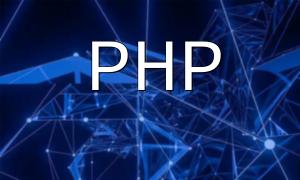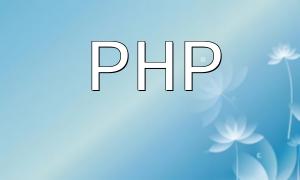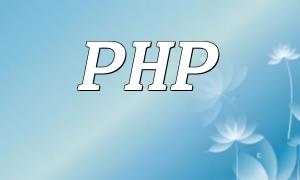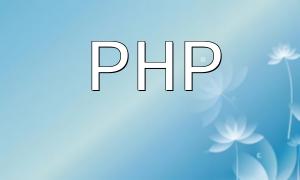With the rapid development of the internet, PHP has become one of the most important languages for building Web applications. Whether it's for small business apps or large commercial platforms, PHP is widely used. In this article, we will share some experiences and tips for PHP development, helping developers create efficient and reliable Web applications.
Choosing the right PHP framework is the first step in developing high-quality Web applications. Frameworks provide developers with a complete set of tools that greatly improve development efficiency and reduce repetitive work. Additionally, the security features built into frameworks help enhance the security of applications. When selecting a framework, developers should make decisions based on project requirements and their own experience.
The MVC (Model-View-Controller) design pattern is widely adopted in Web development. By separating the application into three layers—data, presentation, and logic—MVC helps developers organize code more efficiently, making maintenance easier. It also enhances system scalability and helps developers better manage and structure the code.
Database operations are often a performance bottleneck in Web applications, so reducing database queries is key to improving performance. Developers can use caching mechanisms to minimize database access and avoid unnecessary queries. Additionally, minimizing complex JOIN operations helps prevent redundant data processing and enhances query performance.
ORM (Object-Relational Mapping) is a technique that maps database tables to objects. ORM libraries simplify database operations, allowing developers to interact with objects rather than writing raw SQL queries. This not only improves code readability but also enhances the maintainability of the application.
Object-oriented programming (OOP) has become an essential technique in modern development. With OOP, developers can break down complex business logic into independent objects, each handling a specific task. This approach makes code better organized, easier to maintain, and more scalable, promoting teamwork and collaboration on large projects.
The PHP development community offers a wealth of third-party libraries and plugins that developers can use to speed up development and enhance application functionality. These plugins not only save development time but also improve the quality and stability of the code. Common plugins include those for image processing, file uploads, and email sending.
Building powerful Web applications requires experience and the right technical choices. Choosing the right PHP framework, adopting the MVC design pattern, reducing database queries, using ORM libraries, writing object-oriented code, and leveraging third-party plugins are all strategies that significantly improve development efficiency and the quality of applications. We hope the tips and advice in this article help developers enhance their PHP development skills.










